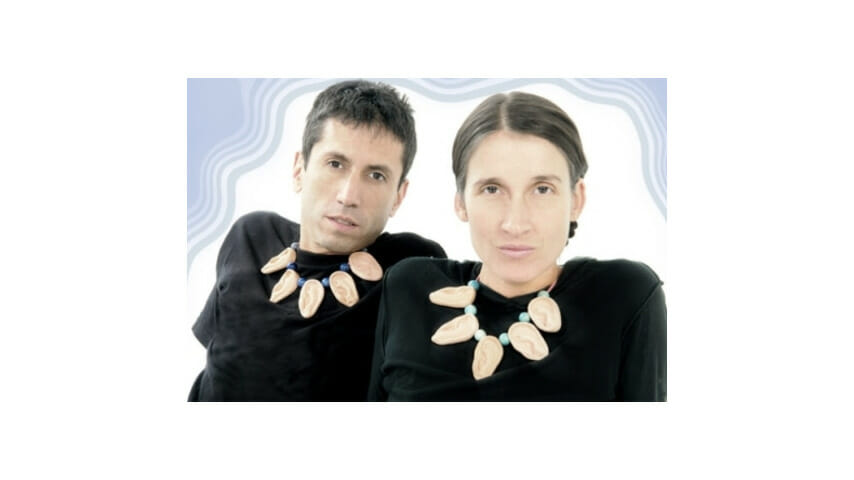Introducing Endless Mode: A New Games & Anime Site from Paste
The setting is Casa Pepe, a combination butcher shop, carvery and tapas bar in Barcelona, Spain. The band is Aterciopelados—or “Velvety Ones”—Colombia’s most adventurous export of rock en español. The occasion is a tour supporting Oye, the group’s ?rst album of new music in ?ve years.
It’s early afternoon when I catch up with singer Andrea Echeverri. She and her entourage are having a late lunch, but it’s so noisy inside the restaurant that Echeverri steals away to the busy Barcelona streets, where the gentler sounds of children yapping in Spanish bleed into our conversation.
Children are important to Echeverri, whose daughter, Milagros (“Miracles”), was born just before the release of the singer’s self-titled 2005 solo debut. That album’s lyrics revolved around motherhood, and the music’s palpably feminine sensibility made it one of the year’s best releases. Her concern for children—in particular, young girls—is also at the heart of “Oye Mujer” (“Listen Woman”), one of the stronger tracks on Oye. The song calls for female musicians—such as Echeverri’s fellow countrywoman, Shakira—to stop marketing themselves as sex objects.
“But it’s not just Shakira,” Echeverri insists, “it’s Jennifer Lopez, it’s Madonna.” Using sex to sell popular music, she says, “is almost the natural thing to do now, so you have to consciously go against it. In this song, I’m asking, ‘Are we all accomplices in this?’ It’s a matter of consciousness, of awakening, of changing.”
Aterciopelados have been in a constant state of change since their 1994 arrival, with two albums of ?at-out punk rock (in the vein of X and Bikini Kill) before Echeverri and musical partner, bassist Héctor Buitrago, brought in a new palette of sonic textures and cultural in?uences on Aterciopelados’ acclaimed third album, 1997’s La Pipa de la Paz (“The Pipe of Peace.”) Then the duo detoured into more experimental, electronic-based sounds on their next two records. Oye is more organic, aesthetically closer to La Pipa but without the power chords and with even more positive vibes.
Echeverri and Buitrago balance Oye’s ethereal side with a harder-hitting political sensibility. “Cancion Protesta” (“Protest Song”) is a protest-singer homage in which Echeverri namechecks a worldwide laundry list of progressive artists from John Lennon, Bob Marley and Joan Baez to Argentina’s Leon Gieco, Panama’s Ruben Blades and Spain’s Manu Chao. “We’re protesting against forests being cut down, against war, against pesticides being poured over the Amazon and over Colombia in general,” she says.
Echeverri believes more contemporary artists should wake up and smell the pesticides. “Lots of music produced these days, it’s too light, too sexual and not profound at all,” she says. “I think that’s one of the things about Eastern music—you can feel their souls.” And on Oye, you can feel the velvety souls of Aterciopelados.
